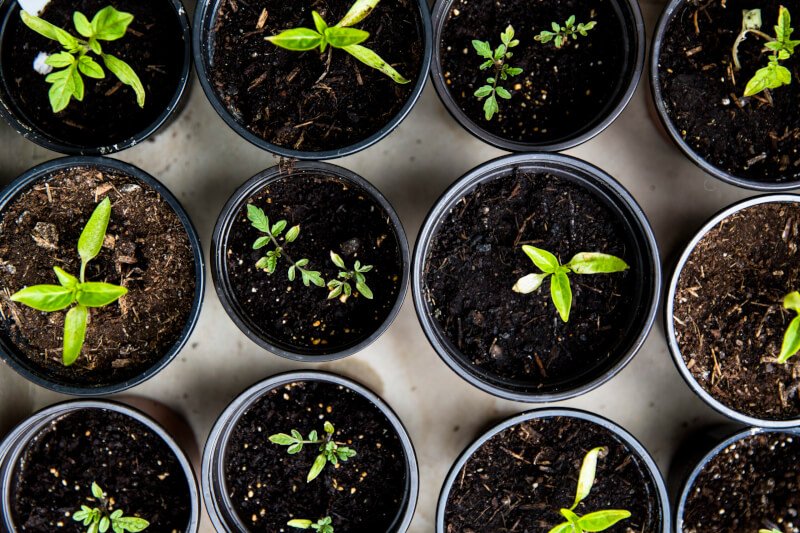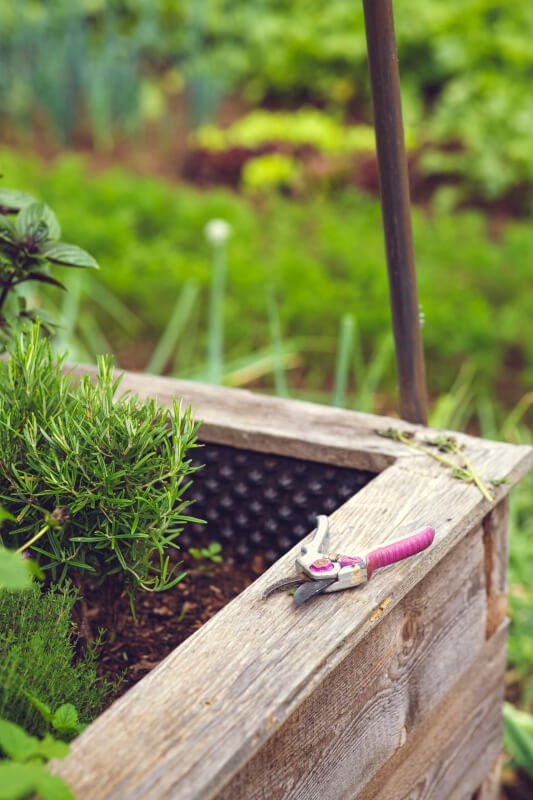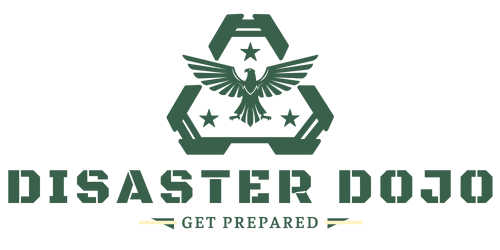Imagine a life where you are no longer dependent on the grid, where power outages are a thing of the past, and you have the skills and knowledge to sustain yourself and your loved ones. In this article, we will explore off-the-grid power solutions and a plethora of life-saving strategies for self-sufficient living. From harnessing renewable energy sources to learning essential survival skills, join us as we embark on a journey towards a more self-reliant and resilient lifestyle.

Off-the-Grid Power
In the pursuit of self-sufficiency, one of the fundamental aspects to consider is power generation. By harnessing alternative energy sources, you can free yourself from the reliance on traditional power grids. There are several off-the-grid power options available, including solar power, wind power, and hydroelectric power.
Solar Power
Harnessing the power of the sun is an excellent way to generate electricity for your off-grid lifestyle. Solar panels can be installed on rooftops or in open areas, capturing the sun’s energy and converting it into usable electricity. The advancements in solar technology have made it more efficient and cost-effective than ever before. With proper installation and maintenance, solar panels can provide a consistent and reliable source of electricity to meet your energy needs.
Wind Power
If you live in an area with consistent wind patterns, harnessing wind power can be a highly effective method of generating electricity off the grid. Wind turbines can be installed on your property to capture the energy of the wind and convert it into usable power. With the right system in place, wind power can be a reliable and sustainable source of energy. It is important to consider factors such as wind speed and turbine placement to maximize the effectiveness of your wind power system.
Hydroelectric Power
If you have access to a water source with sufficient flow, hydroelectric power can be a viable option for off-the-grid power generation. By utilizing the force of moving water, a hydroelectric generator converts this energy into electricity. This method is particularly suitable for those living near rivers, streams, or other bodies of flowing water. While hydroelectric power requires careful planning and installation, it can provide a constant and renewable source of electricity for your self-sufficient lifestyle.
Water Collection and Purification
Water is a basic necessity for survival, and ensuring a reliable and clean water supply is crucial when living off the grid. There are several methods to collect and purify water for your self-sufficient lifestyle, including rainwater collection, well water, and water filtration systems.
Rainwater Collection
Collecting rainwater is a sustainable and cost-effective way to secure a water supply. By installing a rainwater collection system, you can capture and store rainwater for various household uses. This water can be utilized for irrigation, washing, and even drinking after proper filtration. It is important to have a well-designed collection system and storage containers to ensure the cleanliness and purity of the collected rainwater.
Well Water
If you have access to a groundwater source, such as a well, it can provide a reliable and sustainable water supply. Wells tap into underground aquifers, providing a constant source of water. It is essential to have proper maintenance and regular water testing to ensure the quality of the well water. Investing in a reliable pump system and understanding the water table in your area are key considerations for utilizing well water in your self-sufficient lifestyle.
Water Filtration Systems
Regardless of the water source, having a reliable water filtration system is essential for ensuring the cleanliness and safety of your drinking water. Various filtration systems, such as reverse osmosis, activated carbon filters, and UV disinfection, can remove impurities and contaminants from the water. It is important to research and invest in a filtration system that is suitable for your specific water source and purification needs.
Food Production and Storage
Growing and storing your own food is a vital aspect of self-sufficient living. By cultivating vegetable gardens, raising livestock and poultry, and implementing food preservation methods, you can ensure a sustainable and nutritious food supply.
Vegetable Gardens
Growing your own vegetables not only provides you with fresh and organic produce but also promotes self-reliance. Setting up a vegetable garden requires planning and consideration of factors such as soil quality, sunlight exposure, and water availability. By cultivating a variety of vegetables, you can create a diverse and balanced diet for you and your family. Implementing sustainable gardening practices, such as composting and crop rotation, can enhance the productivity of your garden.
Livestock and Poultry
Raising livestock and poultry can provide a valuable source of meat, eggs, milk, and other animal products. However, it requires careful planning, adequate space, and knowledge of animal husbandry practices. Depending on your circumstances and preferences, you can consider raising chickens, goats, rabbits, or even larger animals like cows or pigs. It is essential to provide proper shelter, feed, and healthcare for your animals to ensure their well-being and the quality of the products they provide.
Food Preservation Methods
To make the most of your food production and ensure a year-round supply, it is crucial to employ food preservation methods. Canning, fermenting, dehydrating, and freezing are among the common techniques for preserving food. Each method has its advantages and suitability for different types of food. By preserving excess produce or bulk purchases, you can reduce food waste and establish a well-stocked pantry for self-sufficiency.
Medical Preparedness
Medical emergencies can happen, even off the grid. Being prepared with first aid kits, herbal remedies, and emergency medical training can help ensure you are equipped to handle medical situations in a self-sufficient manner.
First Aid Kits
Having a well-stocked and comprehensive first aid kit is essential for handling minor injuries and medical emergencies. Your first aid kit should include items such as bandages, antiseptic ointment, pain relievers, and essential medical supplies. Additionally, it is crucial to regularly check and replenish your first aid kit to ensure its effectiveness when needed.
Herbal Remedies
Consider supplementing your first aid kit with herbal remedies and natural remedies for common ailments. Herbal remedies can be grown in your garden or sourced from reputable suppliers. Researching and understanding the uses and dosage guidelines for different herbs can provide you with alternative options for treating various health conditions.
Emergency Medical Training
Obtaining emergency medical training can empower you with the knowledge and skills needed to handle medical situations during emergencies. Basic life support (BLS) and cardiopulmonary resuscitation (CPR) certifications are valuable skills that can make a difference in life-threatening situations. Additionally, taking courses in wilderness first aid and herbal medicine can further enhance your ability to provide medical care in a self-sufficient manner.

Self-Defense and Security Measures
In an off-grid lifestyle, ensuring your safety and the security of your property becomes paramount. Implementing home security systems, considering self-defense options, and establishing perimeter defense can help safeguard your self-sufficient lifestyle.
Home Security Systems
Investing in a reliable home security system is an effective way to deter intruders and protect your property. Modern security systems include surveillance cameras, motion sensors, and alarm systems that can be monitored remotely. Additionally, posting visible signs indicating the presence of a security system can act as a deterrent to potential burglars.
Firearms and Non-lethal Weapons
When it comes to self-defense, different individuals have varying preferences and comfort levels. Some may choose to own firearms for personal protection, while others may prefer non-lethal options such as pepper spray or stun guns. It is essential to become familiar with the laws and regulations surrounding firearms ownership and to receive proper training in their safe use.
Perimeter Defense
Securing the perimeter of your property can further enhance your security measures. Fencing, gates, motion-activated lighting, and strategically placed obstacles can deter unauthorized access and provide an added layer of protection. Regular maintenance and inspection of your perimeter defense systems are necessary to ensure their effectiveness.
Communication Systems
Maintaining reliable communication systems off the grid is crucial for emergency situations, staying connected with loved ones, and accessing important information. Two-way radio communication, satellite phones, and internet alternatives can meet your communication needs.
Two-Way Radio Communication
Two-way radios or walkie-talkies are excellent communication devices for short-range communication. They do not rely on any external infrastructure and can be used to coordinate tasks, communicate with family members, or request assistance during emergencies. It is important to obtain quality two-way radios with sufficient range and learn how to operate them effectively.
Satellite Phones
Satellite phones provide communication capabilities even in remote areas where traditional cell phone coverage may be limited or unavailable. By utilizing satellite networks, these phones offer a reliable means of communication during emergencies or when you are far from civilization. It is crucial to understand the satellite coverage in your area and have a clear understanding of the operation and limitations of satellite phones.
Internet Alternatives
In today’s interconnected world, access to the internet is often considered essential. Off the grid, several alternative methods can provide internet access in remote locations. Satellite internet, mobile hotspots, and wireless routers connected to long-range antennas are among the options to explore for obtaining internet connectivity. Evaluating your specific needs and considering factors such as speed, cost, and reliability can help you choose the most suitable alternative for your situation.

Financial Independence
Achieving financial independence is an important aspect of self-sufficiency. By saving and investing wisely, exploring bartering and trade, and setting up home-based businesses, you can take control of your finances and reduce reliance on external sources.
Savings and Investments
Building a strong financial foundation starts with saving and investing your resources wisely. Creating a budget, reducing unnecessary expenses, and setting aside a portion of your income for savings are essential steps towards financial independence. Additionally, exploring investment opportunities such as stocks, bonds, and real estate can help grow your wealth and secure your future.
Bartering and Trade
In an off-grid community, bartering and trade can become valuable methods of acquiring goods and services. By exchanging your own products or skills for the items you need, you can create a mutually beneficial system that promotes self-sufficiency and reduces reliance on traditional currency. Building relationships within your community and understanding the value of different goods and services are key elements of successful bartering and trade.
Home-Based Businesses
Establishing a home-based business can provide a sustainable source of income that aligns with your self-sufficient lifestyle. Depending on your skills and interests, options such as farming, crafts, online services, or consulting can be viable choices for generating income. Conducting proper market research, developing a business plan, and understanding the legal and financial obligations associated with running a business are crucial for success.
Building and Repair Skills
Having the knowledge and skills to build and repair various aspects of your homestead can save you money, increase self-reliance, and contribute to the longevity of your self-sufficient lifestyle. Carpentry, plumbing, and electrical skills are particularly valuable for maintaining your property and addressing any issues that may arise.
Carpentry
Having basic carpentry skills allows you to construct and repair structures, build furniture, and handle various woodworking tasks. Learning how to measure, cut, and join different types of wood can empower you to tackle projects around your homestead and make necessary repairs when needed.
Plumbing
Understanding plumbing systems and being able to troubleshoot and repair common issues can save you time and money. Knowledge of pipe and fitting types, as well as basic plumbing concepts, will enable you to address leaks, replace fixtures, and maintain your water supply system effectively.
Electrical
Knowing how to handle basic electrical tasks can be essential for maintaining your electrical power system and addressing any electrical issues that may arise. Learning about electrical safety, wiring, and circuitry can empower you to make repairs and safely handle electrical installations.

Emergency Preparedness
Being prepared for emergencies is crucial when living off the grid. Having emergency preparedness kits, evacuation plans, and emergency communication plans can help ensure your safety and well-being during unexpected events.
Emergency Preparedness Kits
Creating emergency preparedness kits for different scenarios is an essential step in being prepared for emergencies. These kits should include items such as food, water, medical supplies, flashlights, batteries, and essential documents. It is important to regularly check and replenish the items in your kits to ensure they are up to date and meet your specific needs.
Evacuation Plans
Having a well-thought-out evacuation plan is necessary in the event of natural disasters or other emergencies that may require you to leave your property. Identify multiple evacuation routes, establish meeting points for your family, and ensure you have necessary supplies and transportation options. Regularly review and practice your evacuation plan to ensure everyone is familiar with the procedures.
Emergency Communication Plans
In times of emergency, effective communication can be critical. Establishing an emergency communication plan with your family or community members ensures everyone is informed and can coordinate their actions. Designate a central point of contact, set up communication channels such as walkie-talkies or designated phone numbers, and establish protocols for check-ins and updates.
Community Engagement
Building connections and engaging with your neighbors and local community can enhance your self-sufficient lifestyle. By supporting local businesses, joining or forming a homesteading community, and actively participating in community events, you can create a network of like-minded individuals who share similar goals and interests.
Building Relationships with Neighbors
Getting to know your neighbors and fostering positive relationships can contribute to a strong and supportive community. By sharing knowledge, resources, and assistance, you can create a network of individuals who can help each other during challenging times. Engage in conversations, exchange ideas, and organize community initiatives to strengthen the bonds within your neighborhood.
Supporting Local Businesses
Supporting local businesses aligns with the principles of self-sufficiency and sustainability. By purchasing from local farmers, artisans, and entrepreneurs, you contribute to the local economy and promote self-reliance. Seek out farmers’ markets, craft fairs, and small businesses in your area to discover quality products and support your local community.
Joining or Forming a Homesteading Community
Joining or forming a homesteading community allows you to connect with individuals who share your passion for self-sufficient living. By pooling resources, knowledge, and skills, you can enhance your self-sufficiency journey and create a supportive and sustainable community. Research existing homesteading communities in your area or consider starting one by reaching out to like-minded individuals. Collaborate on projects, organize workshops, and share experiences to build a thriving community focused on self-sustainability.
In conclusion, embracing an off-the-grid lifestyle requires careful planning, skill development, and a commitment to self-sufficiency. By implementing strategies for power generation, water collection and purification, food production and storage, medical preparedness, self-defense and security measures, communication systems, financial independence, building and repair skills, emergency preparedness, and community engagement, you can create a holistic and resilient self-sufficient lifestyle. Through these life-saving strategies, you can empower yourself to thrive independently while contributing to a more sustainable and interconnected future.



